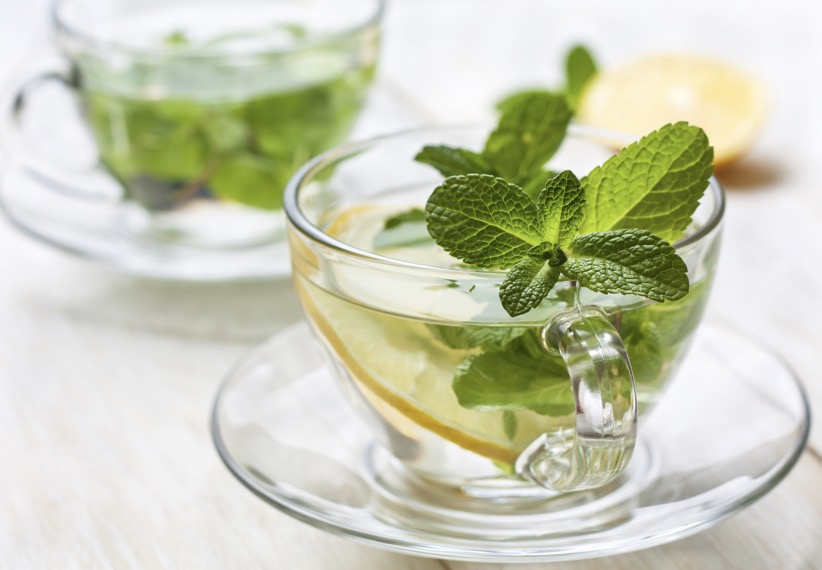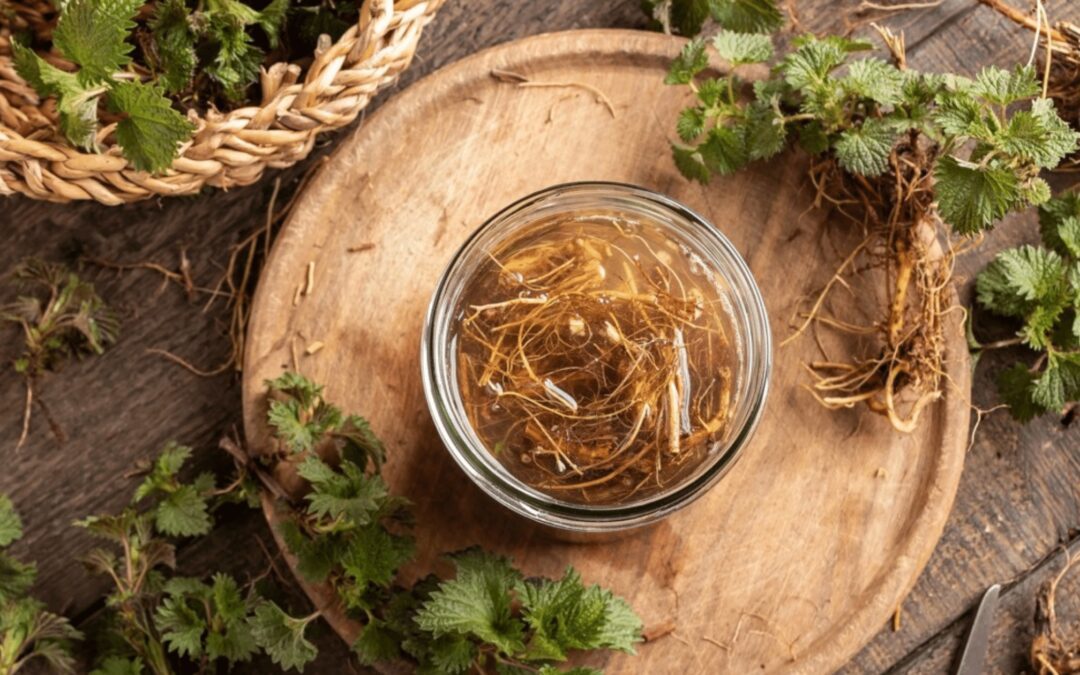How to lower androgens, naturally
Anti-androgen medications such as spironolactone and cyproterone acetate are used to treat hormonal acne, female pattern hair loss and PCOS. Are there natural alternatives?
Yes, there are some contenders. But before diving into specific nutritional supplements and herbal medicines, we need some big picture thinking.
Why are androgens being made in excess?
What’s the driver?
Why are they converting to the more potent DHT?
These are the questions I ask in clinical practice. Treating upstream causes gives lasting results and reduces long term prescriptions of medicines, either natural or allopathic.
Treat the underlying cause of androgen excess
The two most significant drivers of androgen imbalances are insulin dysregulation and elevated cortisol.
Insulin
Excess insulin stimulates androgen production and contributes to inflammation, which increases the risks of acne—a double whammy.
Hang on; I don’t have diabetes. Is this still relevant to me? Yes, you can have a normal range fasting blood glucose result and still have high insulin. The elevated insulin is what keeps the blood glucose in range.
You don’t need to have a medical condition to be sending your insulin on a roller coaster ride. Meals or snacks which have large amounts of simple sugars will spike your insulin. Insulin and cortisol are both “Goldilocks” hormones – not too much, not too little, just right.
Balancing insulin can be done effectively by diet.
Tips for balancing insulin
Base most of your diet on low glycaemic index (non-blood sugar spiking) foods like non-starchy vegetables, whole fruits, whole grains, healthy fats and protein. High fibre foods are your prime weapon when it comes to making insulin your friend again.
Remove or reduce the following:
- Refined grains and sugars (white bread, pasta, crackers, biscuits, sweets)
- Soft drink
- Alcohol
- Fruit juice
- Dried fruit
A word on dairy and acne
Processed dairy (ice-cream, skim milk, milk powders) increases the hormone-insulin-like grow factor 1 (IGF-1) and magnifies insulin by 3-6 times. Small amounts of whole milk and cheeses usually do not trigger acne if no other allergy exists.
Cortisol
Cortisol is realised from the adrenal glands in response to psychological, emotional, physical and environmental stress. It prepares you to cope and overcome the stressor by releasing stored glucose thereby flooding your body with energy.
Chronically elevated cortisol is problematic, creating an excess of blood glucose leading to insulin dysregulation. Another “gift” of elevated cortisol is that it increases your appetite for calorie-dense high glycaemic foods. We have already discussed why this is bad news for high androgens.
To get your cortisol back in balance, you need to support your stress recovery system and build resilience. Removing or reducing exposure to stressors is the ideal solution but not always practical or possible. For emotional/psychological stressors, mindfulness practices or counselling therapies can be helpful.
Sex hormone-binding globulin
Another way you can bring your androgens back into balance is by ensuring you have sufficient sex hormone-binding globulin (SHBG). SHBG is a protein made in your liver, and it does precisely what the name suggests – it binds with steroid hormones (mostly androgens) so that they are effectively inactive. This is one of the mechanisms behind using birth control pills for acne. To naturally support healthy levels of SHBG, you need balanced insulin, a healthy liver and plenty of our old friend fibre in your diet.
I often prescribed 1-2 tablespoons of ground flaxseed/day to improve SHBG levels.
Anti-androgen nutrients and herbs
If you target the upstream causes of inulin and cortisol, there are many nutrients, and herbs will be beneficial. What follows is a discussion on herbs and nutrients that have specific effects on androgen receptors or the aromatisation of testosterone to dihydrotestosterone (DHT).
Red Reishi
(Ganoderma lucidum)
Reishi is a mushroom with thousands of years of history of use in Traditional Chines Medicine. It is a non-stimulating adaptogenic tonic helping the body cope with stress. Blood sugar regulation and reducing inflammation are two fundamental properties of this herb.
Animal research in 2005 found Reishi had high 5 alpha-reductase activity and could reduce DHT production 1 .
Peony and Licorice
(Paeonia lactiflora and Glycyrrhiza glabra)
Recent research shows the combination of Peony and Licorice effectively manages PCOS, a condition where high ovarian androgens are one of the underlying drivers 2.
Be cautious with liquorice if you have high blood pressure.
Green Tea
(Camellia Sinensis)
Green tea has a multitude of health benefits. Animal studies show it reduces the number of androgen receptors 3 .
Spearmint
(Mentha spicata)
This member of the mint family has an extensive history of being used in the Middle East to reduce excessive hair growth in females. Studies in women with PCOS have found that consuming two cups a day for 30 days shows it lowers blood levels of free testosterone 4.
I regularly use this as part of my hormonal acne treatment in clinical practice, and my patients report it to be both beneficial and palatable.

Saw palmetto
(Serenoa repens)
This palm tree has been researched for its effects in benign prostatic hyperplasia (BPH) and androgenic alopecia. It is a 5 alpha-reductase inhibitor and reduces the conversion of testosterone to DHT 5.
It is often marketed as a female anti-androgen, but research in this area is lacking. I have not observed it to be clinically effective for female hormonal acne.
Nettle root
(Urticia diocia radix)
Both the root and the leaf have been used traditionally for “eruptive skin conditions”.
Research has found the root (not the leaf) may have multiple mechanisms involved in BPH androgen reduction: 5 alpha-reductase inhibition, aromatase inhibition and modulating SHBG. It’s often combined with Saw Palmetto for treatment of BPH.
Zinc
Zinc is a mineral involved in hundreds of enzymatic actions in the body. As an anti-androgen, it downregulates androgen receptors and reduces sebum production 6. Zinc’s wound healing and anti-inflammatory properties are also beneficial in acne.
Supplemental zinc competes for absorption with iron, so be cautious with extended doses of longer than three months and take away from iron supplements.
Wrapping it up
Some herbs and nutrients are natural anti-androgens, but the most effective treatment targets upstream causes of androgen imbalances, including insulin dysregulation and elevated cortisol.
Treat the root causes, and you will get lasting results.
If you enjoyed this article, you might also like:
What vitamins work best for acne?
A guide to using herbs for acne
References:
- Fujita R, Liu J, Shimizu K, et al. Anti-androgenic activities of Ganoderma lucidum. J Ethnopharmacol. 2005;102(1):107-112. doi:10.1016/j.jep.2005.05.041
- Arentz S, Smith CA, Abbott J, Fahey P, Cheema BS, Bensoussan A. Combined Lifestyle and Herbal Medicine in Overweight Women with Polycystic Ovary Syndrome ( PCOS ): A Randomized Controlled Trial. Phytotherapy Res. 2017;1340(March):1330-1340. doi:10.1002/ptr.5858
- Miyata Y, Shida Y, Hakariya T, Sakai H. Anti-cancer effects of green tea polyphenols against prostate cancer. Molecules. 2019;24(1). doi:10.3390/molecules24010193
- Grant P, Ramasamy S. An update on plant-derived anti-androgens. Int J Endocrinol Metab. 2012;10(2):497-502. doi:10.5812/ijem.3644
- Bayala B, Zoure AA, Baron S, de Joussineau C, Simpore J, Lobaccaro JMA. Pharmacological modulation of steroid activity in hormone-dependent breast and prostate cancers: Effect of some plant extract derivatives. Int J Mol Sci. 2020;21(10). doi:10.3390/ijms21103690
- Gupta M, Mahajan VK, Mehta KS, Chauhan PS. Zinc Therapy in Dermatology : A Review. Dermatol Res Pract. 2014;2014:1-11.

Need help with your acne?
Norelle Hentschel is an experienced Naturopath with a clinic in Stones Corner, South East Brisbane and also offers Telehealth consults Australia wide. She enjoys supporting her clients on their clear skin journey.
Want more articles like this?
Join us at Your Skin Remedy – the monthly missive for healthy skin from the inside out. Practical, actionable, and informative. Your clear, glowing skin starts here.
PS. Your inbox real estate is precious. Your Skin Remedy is pitch and promo free. I promise. One email a month — that’s it.

